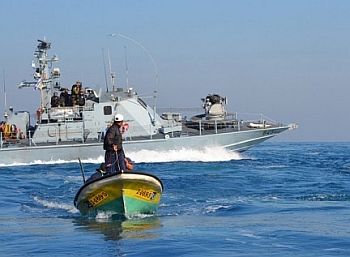Tag: Gaza
-
From Soweto 1976 to Gaza 2012: what we need is people’s power!
3 December 2012 | PACBI In 2008/2009 Gaza was bombed by Israeli Apache helicopters and F16 and V58 fighter planes for 22 days, ultimately causing the deaths of more than 1400 Palestinians, predominatly civlians. Israel, with all the impunity it has enjoyed since its establishment on the ruins of Palestinian society, returned to Gaza two…
-
In new violation of ceasefire agreement, Israeli forces arrest 14 fishermen and confiscate 3 fishing boats: number of arrested fishermen increases to 29 and confiscated boats to 9
2nd December 2012 | Palestinian Centre for Human Rights The Palestinian Centre for Human Rights (PCHR) repeats its condemnation of Israel’s violations against Palestinian fishermen in the Gaza Strip. PCHR is concerned over the escalation of Israeli attacks directed against fishermen since the Israeli offensive on the Gaza Strip that was stopped following the cease-fire…
-
Ceasefire re-awakens dreams of Gaza fishermen
27 November 2012 | International Solidarity Movement, Gaza Strip Fishermen in Gaza are able to fish six miles from the shore for the first time since 2006 after the ceasefire between Israel and Gaza. Fishermen hope the fishing industry will recover after its almost complete destruction by the siege but say that 6 miles is…


